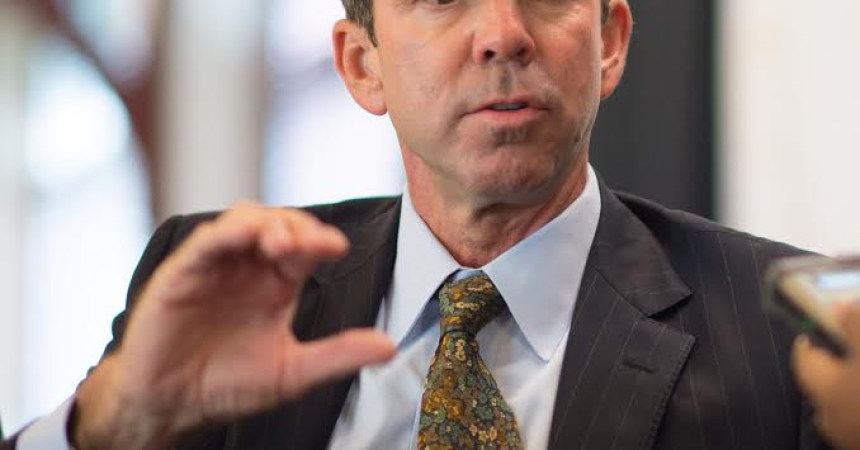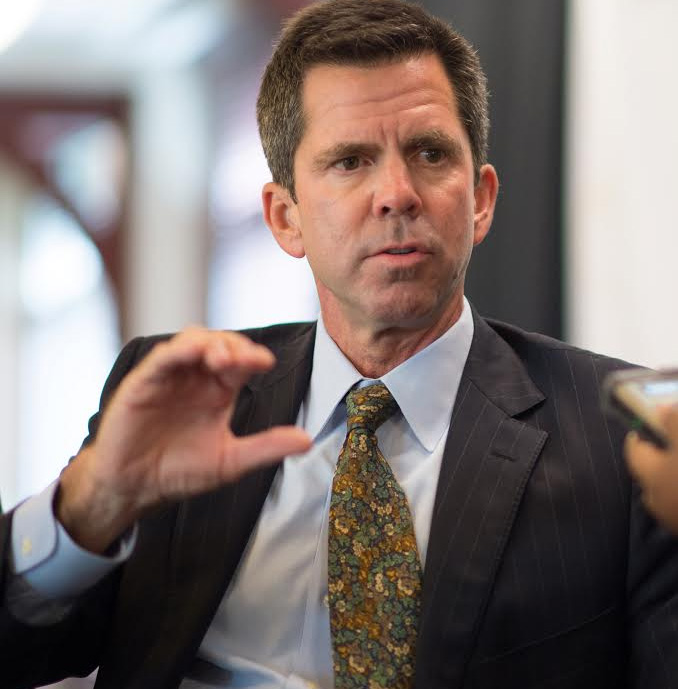
Advocate defends school choice

John Kirtley, chairman of Step Up For Children, makes a point just before laying out why school choice should stay in Florida.
Photo by Josh McLawhorn
By St. Clair Murraine
Outlook writer
One of the strongest advocates for school choice continues to make a push for Florida’s tax credit scholarships to stay in place, insisting that the teacher’s union should drop its suit to eliminate the program.
John Kirtley, chairman of Step Up for Students, made his case for the voucher program while speaking in Tallahassee before the Economic Club of Florida this past week. Kirtley said the case that has been on-going for almost two years is a social justice issue because the Florida Education Association (FEA) wants to deprive low-income parents the right to choose the best school for their children.
“I believe poor parents must be empowered to choose the right environment for their children,” Kirtley said. “But understand this; I am not a private school advocate. I don’t think that private schools are better than public schools.
“I strongly believe that low-income parents have to be empowered to choose whatever environment that’s going to work to prevent their child from becoming a statistic.”
FEA will get another day in court on May 10 when a panel of three judges will decide whether the suit moves forward. The case was first filed in 2014, with the FEA making among other claims that the voucher program is unconstitutional.
Judge George Reynolds threw out the case on the grounds that he couldn’t find anything unconstitutional about the tax credit program, as the union claimed.
The FEA’s insistence to have the case heard in a higher court inspired a march that attracted 10,000 children, parents and teachers in January. Among the speakers were Martin Luther King Jr., and Rev. Victor Curry, pastor at New Birth Baptist in North Miami.
“This gives children an opportunity to equalize this whole educational situation,” Curry said during the rally. “We lag so far behind and now we have an opportunity for our children to make strides and better themselves. I don’t understand why the suit is even there.”
The tax credit program gives parents vouchers for their children to attend any school. Most of the 80,000 participants attend faith-based schools at an average of about $6,000 per voucher each year.
Hispanics make up about 40 percent of participants and 30 percent are Black, according to the Department of Education. Sixty percent of students in the program come from single-parent households, Kirtley said.
Kirtley questions the validity of the suit, pointing to other voucher programs such as the state’s Voluntary Prekindergarten program that funds pre-school education for low-income families. The Bright Futures education funding program also operates on the same principle, he said, adding that neither is being questioned by the FEA.
“They (the union) only targeted the program that serves low-income children who are doing very poorly in their current schools,” he said. “Should they succeed, 80,000 children will be evicted.
“If the plaintiffs win there will be fiscal and operational chaos in the districts. I can see the ramifications for our state should this program be found unconstitutional.”
The tax credit voucher program is part of a growing trend in how parents choose to educate their children, Kirtley said. He pointed to a case in which a South Florida student who has taken two classes in his zoned school, two on-line and two at St. Pete College.
There are also cases in which children with special needs attend private school on scholarships paid for by the state’s treasury, he said.
“That is the future of public education, in my opinion,” he said.
Going farther in with his explanation of why the voucher program is beneficial, Kirtley said its advantages have been proven.
“Research has shown that the more a program school has kids come on, the bigger the learning gains for the children who remain in public school,” he said. “This program is helping the academic performance of the public schools.”







